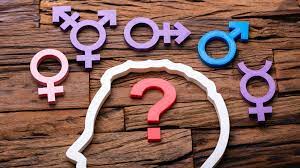Embracing one’s sexual orientation or gender identity is an empowering journey, yet it can also be accompanied by unique challenges and struggles. In such circumstances, seeking support from a psychologist who specializes in LGBTQ+ issues can provide invaluable assistance. This article explores the role of LGBTQ+ psychologists in helping individuals navigate their identities and achieve optimal mental health.
Contents
Understanding LGBTQ+ Psychology
 LGBTQ+ psychology is a specialized field within psychology that focuses on the unique experiences, challenges, and mental health needs of lesbian, gay, bisexual, transgender, and queer individuals. It encompasses a range of topics, including:
LGBTQ+ psychology is a specialized field within psychology that focuses on the unique experiences, challenges, and mental health needs of lesbian, gay, bisexual, transgender, and queer individuals. It encompasses a range of topics, including:
- identity development
- coming out
- discrimination
- societal stigma
- relationship dynamics
And overall the impact of these factors on mental well-being. LGBTQ+ psychologists are trained to provide culturally sensitive and affirming support, acknowledging the diversity within the LGBTQ+ community. And tailoring their approach to meet individual needs.
By understanding the intersectionality of LGBTQ+ identities and employing evidence-based therapeutic approaches, LGBTQ+ psychologists are dedicated to promoting well-being. And, the resilience of their clients within the context of their diverse identities.
What Is The Role Of LGBTQ+ Psychologist?
The role of LGBTQ+ psychologists is multifaceted and encompasses various aspects of support and advocacy for individuals within the LGBTQ+ community. Here are some key roles they play:
Providing LGBTQ+ Affirming Therapy
Firstly, they create a safe and affirming therapeutic environment where individuals can explore their identities, express their concerns, and address mental health issues. They are knowledgeable about the unique challenges faced by LGBTQ+ individuals and employ specialized interventions to support their clients’ well-being.
Identity Development and Exploration
Psychologists assist individuals in understanding and embracing their sexual orientations, gender identities, and gender expressions. They facilitate the process of self-discovery, self-acceptance, and the development of a positive LGBTQ+ identity.
Coping with Discrimination and Stigma
LGBTQ+ psychologists help clients navigate the challenges of discrimination, prejudice, and societal stigma. They provide strategies for building resilience, coping with minority stress. And developing effective ways to respond to negative experiences.
Relationship and Family Support
LGBTQ+ psychologists offer guidance and support for individuals and couples in navigating relationship dynamics, communication, and intimacy. They also assist clients in managing familial reactions, coming out to family members, and fostering healthy family relationships.
Advocacy and Community Engagement
Finally, LGBTQ+ psychologists often engage in advocacy work, promoting LGBTQ+ rights, challenging discriminatory policies, and raising awareness about the mental health needs of the community. They collaborate with LGBTQ+ organizations and contribute to research and training in the field.
Overall, LGBTQ+ psychologists work to create a supportive and empowering environment for their clients, helping them navigate their unique challenges, achieve personal growth, and thrive in their identities.
What Techniques Are Commonly Used By LGBTQ+ Psychologists?
 LGBTQ+ psychologists employ various therapeutic techniques and approaches to support the mental health and well-being of their clients. Here are some commonly used techniques:
LGBTQ+ psychologists employ various therapeutic techniques and approaches to support the mental health and well-being of their clients. Here are some commonly used techniques:
Cognitive-Behavioral Therapy (CBT)
CBT is a widely used therapeutic approach that focuses on identifying and modifying negative thoughts, emotions, and behaviors. LGBTQ+ psychologists utilize CBT techniques to help clients challenge and reframe internalized negative beliefs or biases related to their sexual orientation or gender identity.
Supportive Counseling
Supportive counseling provides a compassionate and empathetic environment for clients to express their feelings, concerns, and experiences. LGBTQ+ psychologists offer active listening, validation, and guidance, allowing clients to process their emotions and gain support.
Family Systems Therapy
LGBTQ+ psychologists often work with clients and their families to address the challenges and dynamics within family relationships. Family systems therapy aims to improve communication, understanding, and acceptance within the family unit, especially during the coming-out process or when addressing conflicts related to sexual orientation or gender identity.
Gender-Affirming Therapy
For transgender and gender-nonconforming individuals, gender-affirming therapy focuses on exploring gender identity, supporting the gender affirmation process, and addressing related mental health concerns. This approach includes discussions about hormone therapy, surgical options, social transition, and overall well-being.
Intersectional Approaches
LGBTQ+ psychologists recognize the intersectionality of identities and experiences. They incorporate an intersectional lens that acknowledges how race, ethnicity, socioeconomic status, and other factors intersect with sexual orientation and gender identity. This approach ensures a comprehensive understanding of clients’ experiences and tailors therapy accordingly.
It’s important to note that therapy techniques are individualized based on the specific needs and goals of each client. LGBTQ+ psychologists draw from a range of therapeutic approaches to tailor treatment plans. That best address the unique challenges and strengths of their clients.
Benefits Of Choosing A LGBTQ+ Psychologist
 Choosing an LGBTQ+ psychologist can offer several distinct benefits:
Choosing an LGBTQ+ psychologist can offer several distinct benefits:
Understanding and Affirmation
These psychologists have specialized knowledge and understanding of the unique experiences, challenges, and concerns faced by LGBTQ+ individuals. They are familiar with the impact of societal stigma, discrimination, and minority stress on mental health. By choosing an LGBTQ+ psychologist, you can be confident that your therapist will provide a supportive and affirming environment where your identity and experiences are understood and validated.
Cultural Competence
They have specific training and expertise in working with LGBTQ+ clients. They are knowledgeable about LGBTQ+ terminology, gender and sexual orientation diversity, and the nuances of LGBTQ+ identity development. This cultural competence allows them to provide tailored interventions and support that address the specific needs and concerns of the LGBTQ+ community.
Safe and Nonjudgmental Space
LGBTQ+ psychologists create a safe, nonjudgmental, and confidential space for you to express your thoughts, feelings, and concerns without fear of discrimination or bias. They are committed to fostering a therapeutic relationship that embraces diversity, inclusivity, and respect.
Specialized Support for Identity Exploration
They can assist you in exploring and understanding your sexual orientation, gender identity, and gender expression. They can help you navigate the coming-out process, address internalized homophobia or transphobia, and develop a positive LGBTQ+ identity. Their expertise can guide you on your journey of self-discovery and self-acceptance.
Knowledge of LGBTQ+ Resources
LGBTQ+ psychologists are often well-connected within the LGBTQ+ community and have access to a range of LGBTQ+-specific resources, such as support groups, community organizations, healthcare providers, and legal services. They can provide referrals and help you access support networks that can further enhance your well-being.
Ultimately, selecting an LGBTQ+ psychologist ensures that you work with a professional who is well-equipped to understand and address the specific challenges and needs you may face as an LGBTQ+ individual. And eventually, enhancing the effectiveness and relevance of the therapy process.
Finding LGBTQ+ Psychologist Near Me
To find an LGBTQ+ psychologist near you, you can try the following methods:
- Online Directories
Utilize online directories specifically designed to help individuals find LGBTQ+-friendly mental health professionals. Websites like MantraCare, and PrideMantra often provide filters that allow you to search for therapists who specialize in LGBTQ+ issues or have experience working with LGBTQ+ clients.
- LGBTQ+ Organizations
Reach out to local LGBTQ+ organizations or community centers in your area. They may have resources or recommendations for LGBTQ+ psychologists or mental health providers who are knowledgeable and supportive of the community.
- Referrals from Healthcare Providers
Consult your primary care physician, gynecologist, or any other healthcare professionals you trust. They may be able to provide recommendations or referrals to LGBTQ+ psychologists or mental health professionals who are well-versed in LGBTQ+ issues.
- Online Support Networks
Join online LGBTQ+ support groups or forums where individuals share their experiences and recommend LGBTQ+-affirming mental health professionals in your region.
- Local Universities or Training Institutes
Contact psychology or counseling departments at local universities or training institutes. They may have LGBTQ+ psychology programs or clinics where you can find LGBTQ+ psychologists or therapists.
When considering a potential psychologist, it can be helpful to schedule an initial consultation or phone call to discuss their experience, approach to therapy, and level of understanding and support for LGBTQ+ issues. This will help you determine if they are the right fit for your specific needs and concerns.
Conclusion
In conclusion, the role of LGBTQ+ psychologists is crucial in providing specialized support and promoting the mental health and well-being of individuals within the LGBTQ+ community. These dedicated professionals offer a range of therapeutic techniques and approaches tailored to the unique experiences, challenges, and identities of their clients. By choosing an LGBTQ+ psychologist, individuals can benefit from an understanding and affirming therapeutic environment where their identities are validated.
By harnessing their expertise and creating a collaborative therapeutic relationship, individuals can embark on a journey of self-discovery, resilience, and empowerment. And overall, embracing their authentic selves and achieving optimal mental well-being.
Life may sometimes be challenging for people from LGBTQ community, but Online LGBTQ Counseling can help. Get experienced LGBTQ therapists at PrideMantra: Book a trial LGBTQ therapy session


